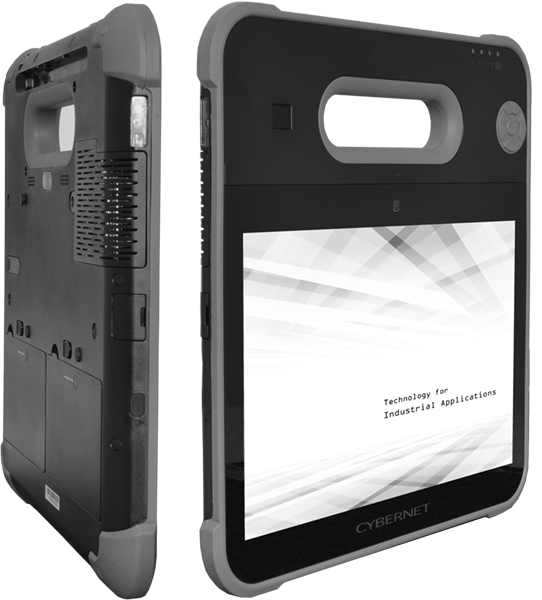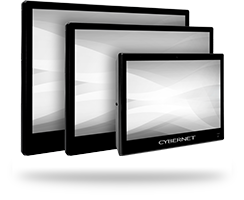You have been tasked to find new computers for the company's manufacturing plants as part of a predictive analytics project. Off-the-shelf brands are off the table - the plants are working away 24/7 with many located in hostile climes like the middle of a desert.
So you turn to commercial computers, which can handle such conditions. However, the specifications are confusing. What exactly does this one mean by being a "rugged" computer? Why is fanless design considered industrial but not rugged (or vice versa)? Is a rugged industrial PC truly better than a simple industrial one? If so, how? Today we put a definitive answer to what makes a rugged computer different from an industrial one.
Features versus Usage
Simply, the difference between a rugged computer and an industrial one is features versus use.
A rugged or ruggedized computer is one built with specific traits or characteristics so it can work reliably in harsh environments and conditions. An industrial computer, on the other hand, is one used in industry like manufacturing. Many have features from rugged ones. This is due to the conditions they're used in.
But rugged computers are not industrial because they can be found in non-industrial settings. Military computers and tablets, which are detailed later, are examples of such non-industrial, rugged PCs.
A simple analogy is a commercial truck compared to an armored one. The former describes its purpose ("commercial") while the latter describes the features of the truck itself.
Features of Rugged Computers
Rugged computers are designed from the beginning to tolerate the harshest environments. These range from a hardshell casing to resist flex and withstand even extreme shocks, to electronic components selected for their ability to withstand both higher and lower temperatures than typical off-the-shelf parts and accessories.
Issues considered in the construction of rugged computers include:
- Ability to handle shock and vibration
- Resistance to temperature and humidity
- Corrosion and abrasion
- Minimal Size, Weight, and Power (SWaP)
- Acoustic noise reduction
- Tolerance to low pressure/altitude
- Ingress Protection (IP) against dust and liquids
- Protection from electromagnetic interference
Generally, there are three levels of ruggedness: semi rugged, fully rugged, and ultra rugged.
Semi rugged
These are usually an enhanced form of a commercial off-the-shelf computer. A tablet that is semi rugged, for example, may have a magnesium case to make it more resistant to drops or spills.
Other features that may be found on semi-rugged PCs include shock-resistant hard disks, and fully-sealed and water-proof keyboards.
Fully rugged
These devices are designed to work in the most extreme conditions. Many industrial computers to be detailed below are fully rugged.
Durability, waterproof and dustproof, and resistant to shocks, drops, and vibrations are some of the few common features found at this rugged level. A fully-rugged industrial panel PC, for example, may have a toughened screen, thicker case, and ultra-resistant hard disk.
Ultra rugged
Devices like computers designated as ultra rugged have been specifically designed for military use. Such items are termed military-grade or military-standard.
To be military-grade, a device endures a series of standard tests spelled out in specifications called MIL-STDs. These include:
- MIL-STD-810H (formerly MIL-STD-810G) - environmental protection
- MIL-STD-461G - EMC/EMI standards
- MIL-DTL-901E - shipboard shock testing (H2)
- MIL-STD-167-1 - shipboard vibration
- MIL-STD-1275E/704F - electrical power
Military-spec spill-resistant keyboard, magnesium alloy casing, storage drive heater, and shock mounted hard disk are just a few features found in ultra-rugged computers.
Using Industrial Computers
As mentioned earlier, industrial computers are intended for industrial purposes (production of goods and services). These can range from:
- Use as remote terminal units (RTUs)
- For supervisory control and data acquisition systems (SCADA)
- Machine automation
- Manufacturing equipment
- New-age autonomous robotics
All these and more require different features than found in typical off-the-shelf computers. This is especially true in terms of reliability, compatibility, expansion options, and long-term supply.
Construction Industry
The construction industry can be a harsh place for computers. Think of a typical construction site which is full of hazards such as dust or lots of hard, uneven surfaces which can permanently disable a dropped tablet. Rugged industrial tablets can be used with minimal fear in such locales thanks to features from rugged computers like fanless design and industrial-grade parts.
Manufacturing Industry
The vibration of industrial machinery like the manufacture of an electric vehicle can loosen connections in a computer. This can eventually cause a sudden shutdown. Hardware like solid-state drives and fanless cooling, which have no moving parts, are far more resistant to vibrations and other forms of physical shock.
Oil and Gas Industry
The oil and gas industry presents unique challenges to computers. Automated drilling equipment, for instance, embedded with smart sensors used during the Upstream phase must be reliable in their detection of new crude deposits. In the Downstream phase, any rugged mini PCs used have to withstand the numerous refining processes which can run 24 hours a day, 365 days a year or even longer. Rugged PC features make meeting such demands possible.
Other commercial sectors where industrial PCs can be found include:
- Agriculture, Forestry, Fishing and Hunting
- Aquaculture
- Chemical Manufacturing
- Leather and Allied Product Manufacturing
- Paper Manufacturing
- Rail Transportation
- Textiles
- Waste Management and Remediation Services
Closing Comment
It almost seems every non-personal computer is described as rugged, industrial, or both. They're not the same, with rugged computers referring to their features while industrial ones by how they're used in their respective industry. The harsh and demanding environments in many businesses means most industrial PCs are built like rugged computers.
If your company is looking to find out what rugged features best serve their industrial computers, contact a representative from Cybernet.
Also follow Cybernet on Facebook, Twitter, and Linkedin to stay up to date on this and other relevant topics.

